Kings Row (1942)
“Now, in this modern and complicated world, man breaks down under the strain and bewilderment, disappointment and disillusionment — gets lost, goes crazy, commits suicide.”
|
Synopsis: |
|
Genres, Themes, Actors, and Directors:
Review: The multifaceted storyline — involving numerous romantic longings, family secrets, mental breakdowns, and other squalid details — was (not surprisingly) toned down quite a bit from the original novel, with a resulting screenplay that feels generally sordid yet a tad opaque at times. For instance, while we see how overly protective Dr. Tower (Rains) is of his sheltered daughter (played first by Mary Thomas, then Betty Field), the film doesn’t share with us the fact of their incestuous relationship (as revealed in the novel); instead, we’re left simply with countless “Don’t ask!” retorts by the increasingly disturbed Field, who is mysteriously forced by Rains to stay home from school at an early age. Indeed, Rains’ performance feels the most confusing in the film — he’s portrayed as a willing mentor to Cummings, yet clearly is ruining his daughter’s life, and thus can’t be seen as the type of life-altering “hero” Cummings builds him up to be. Regardless, Kings Row remains an admirable counterpart to other cinematic depictions of small-town American life at the time, given that it concedes the need for psychiatric intervention at a time when “psychiatry” was an unknown term, and daringly portrays the presence of a “mad” surgeon whose nefarious practices are clearly far from Hippocratic. Meanwhile, both James Wong Howe’s atmospheric cinematography and William Cameron Menzies’ strategically designed sets contribute to the creation of a world which feels both familiar and spooky at the same time. Also of note is Erich Wolfgang Korngold’s soaring score, which was apparently a direct influence on John Williams’ work for Star Wars (1977) years later. Redeeming Qualities and Moments:
Must See? Categories
Links: |
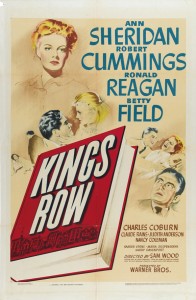

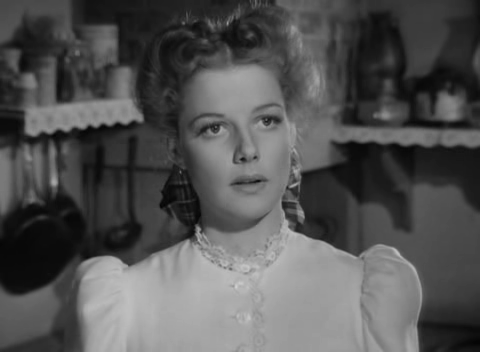
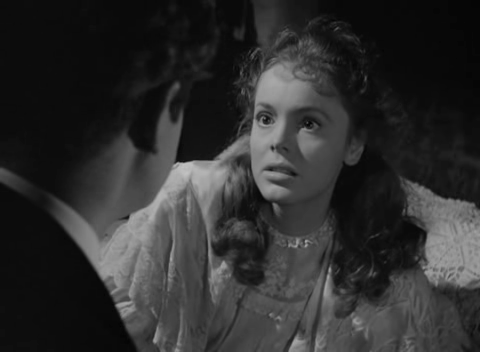
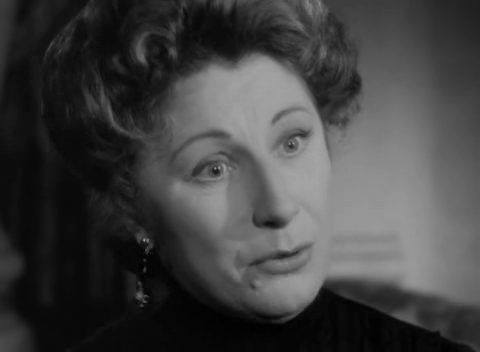
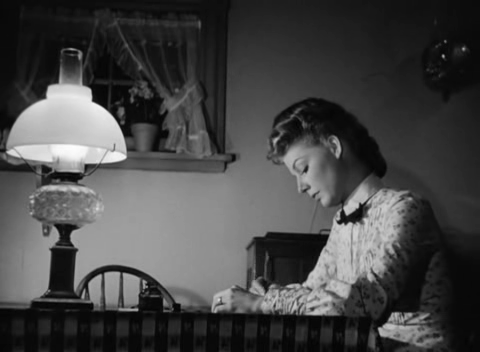
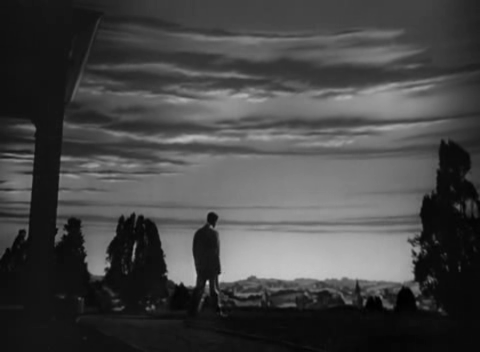
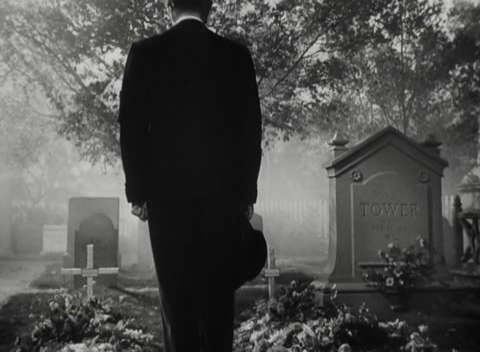
One thought on “Kings Row (1942)”
A once-must, at least. A terrific adaptation of a fine novel.
Watching this again made me think of similar films of the ’40s that concentrate on small-town life (whether set in the ’40s or not). A film like ‘Meet Me In St. Louis’ shows a small town as idyllic in just about every way. Hitchcock’s ‘Shadow of a Doubt’ reveals a similar ideal nature – until a single force of evil enters it from outside its near-perfection. A film like ‘Kings Row’ rings most true to me. Seems to me that all towns – no matter where or when – have/had their fair share of dark underbelly.
I recall reading the novel after I first saw the film years ago, and I remember liking it a lot. I don’t offhand recall the specifics of the main differences (i.e., the incest) but the film does still come off as fairly scandalous in nature (with certain dark sides being very much hinted at). I should here point out that screenwriter Casey Robinson – who it seems was very ‘hot’ in this era, also penning several Bette Davis films – crafted a very sharp screenplay for ‘Kings Row’, often being wonderfully economic. I particularly love the very short scene which consists only of Cummings questioning, “Why?”: a heart-shattering moment.
Even with Reagan’s breakout role, this is a genuine classic which is not propelled by major leading stars of the period. It has all of the polished elements of a Warner Bros. A-picture but it’s basically filled with well-respected supporting players in larger roles. And, under Sam Wood’s careful and sensitive direction, many of these actors (i.e., Cummings, Field, Rains, Coburn, Sheridan, Judith Anderson) turn in performances somewhat unlike what they’ve brought us elsewhere. Generally speaking, they’re all turning in edgy and very impressive stuff here. It’s actually hard to single any of them out since they’re all so clearly committed to the project.
However, one cannot help but wonder *where* exactly this performance by Reagan came from. His work in other films seems to give no hint at all of what he would pull off here. He’s consistently magnetic in this role as he shifts from the various ups and downs of the character’s arc. One wonders if Wood pulled him aside early on and said, “You do know, don’t you?, that this is your real shot? If you have anything to ‘say’, you’d better say it now.” Cause that’s exactly what Reagan does.
All told, a remarkable film – somewhat unsung these days, but one that I find has been a richer experience each time I’ve seen it.